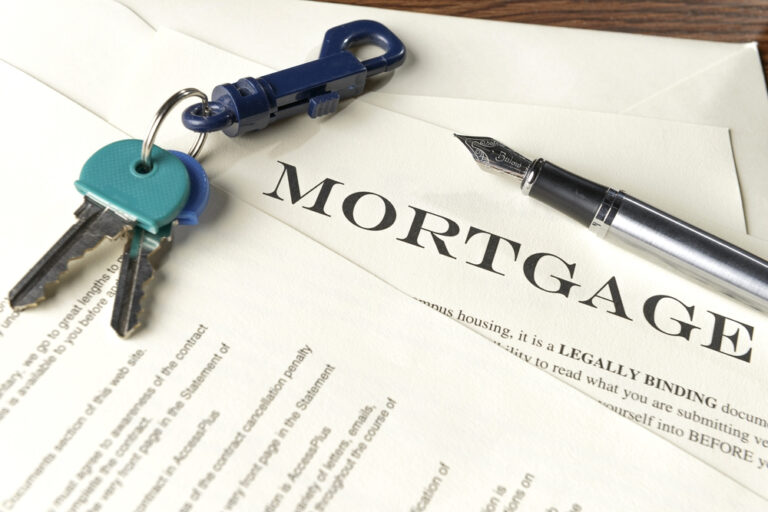If you’re a homeowner with a mortgage, you may have heard the term ‘remortgage’.
Here, we’ll explain everything you need to know about remortgaging and explore the pros and cons of doing so…
What is a remortgage?
A remortgage is when you switch from one mortgage to another, sometimes with a different lender, but you don’t actually move house.
Your new mortgage is secured against your property, just as your old one was, but your new mortgage pays off your previous loan.
Can I remortgage?
Technically, you can remortgage at any time.
However, there are many things to consider before you do, including:
- Your property’s value
- The amount of time left on your current mortgage deal
- Your income and debt levels
Should I remortgage?
Whether or not you should remortgage depends on many factors.
Firstly, you should be looking to remortgage when there is an advantage in doing so, such as:
- To secure a better interest rate and bring down your monthly repayments
- To switch to a different mortgage product, for instance a fixed rate, to help with your monthly outgoings
- To overpay your mortgage if your current deal won’t allow you to
Secondly, your ability to remortgage could depend on your property’s value and your lender’s income and affordability tests.
The pros of remortgaging
There are a host of benefits that can come with remortgaging if you do it at the right time, including:
Reducing your monthly repayments
By remortgaging on to a new mortgage product with a lower interest rate, you can save money on your monthly repayments.
For example, if you’re on a tracker or discount rate mortgage and interest rates look like they might rise, you could switch to a fixed rate before they do.
Or, if you’re on a fixed rate mortgage and interest rates remain as low as they are currently, you could switch to either a more attractive fixed rate deal or consider a tracker or discount rate mortgage
To improve your household budget
By having your mortgage on a fixed rate deal, you can be sure your monthly repayments won’t change over a number of years.
This can help with household budgeting and give you peace of mind in the event of interest rate rises from the Bank of England.
To release equity from your home
If you have equity in your property, you could look to release some of that money, perhaps to carry out home improvements.
Equity is the money in your property’s value above the remaining mortgage secured on it.
For example, if your property is worth £300,000 and your remaining mortgage is £200,000, you have £100,000 in equity.
One way to release that money would be to sell your home, pay off your mortgage and use the equity to buy your next property.
But you can also release equity by remortgaging, meaning you don’t have to move.
For example, let’s say:
- Your home is worth £300,000 and you have £200,000 outstanding on your mortgage, giving you £100,000 in equity
- You want to release £20,000 of that equity to fund a new kitchen
- So, you apply for a new mortgage on your home for £220,000 against its value of £300,000
- £200,000 of that mortgage is used to pay off your previous mortgage, leaving you with £20,000 to fund your kitchen
Of course, whether you can borrow that increased amount is very much at the discretion of your lender.
To lower the loan to value on your mortgage
The loan to value (LTV) of your home is the percentage of mortgage secured on it against its value and the higher the LTV, more often than not the higher the interest rate you’ll pay on your mortgage.
For example, if you bought your property for £400,000 and you have an outstanding mortgage of £300,000, your LTV would be 75%.
If your home has increased in value, you can remortgage against that new valuation, meaning your LTV will drop and you could get a better interest rate.
For instance, if that same property had grown in value to £500,000, your new LTV when remortgaging for the outstanding amount of £300,000 would be 60%.
You could even release £20,000 in equity for your new kitchen and the LTV would still be 64% – 6% lower than your original LTV.
The cons of remortgaging
There are a number of other less positive factors you’ll need to consider before remortgaging, including:
Affordability checks
Although you’re not moving home when remortgaging, your lender, or new lender if you’re switching, will need to carry out strict tests to ensure your new mortgage is affordable for you.
If your income or levels of debt have changed since you took out your original mortgage, or if you’ve moved from employment to self-employment, your lender may decide that the remortgage you’re applying for is not affordable.
Paying more interest
If you decide to borrow more money against your home, for example to fund home improvements, you may end up paying more in interest over your mortgage term and your monthly payments may increase.
Additional costs
There may be additional costs you have to pay if you decide to remortgage.
These could include:
- Early repayment charges – if your current mortgage deal still has time to run, you may have to pay an early repayment charge if you remortgage. This is usually a percentage of your outstanding mortgage amount
- Fees for your new mortgage – when taking out a new mortgage on your property, you may have to pay:
- A mortgage arrangement fee
- A property valuation fee
- Conveyancing fees if you’re changing lender
How much can I remortgage my house for?
Most remortgages are for the amount outstanding on an existing mortgage.
But regardless of whether you’re borrowing the same amount of money, or you’re releasing some equity from your home and increasing your mortgage, your lender will treat you as a new applicant.
That means they’ll assess your borrowing capability, income and debt levels and decide how much you can borrow.
Is now a good time to remortgage?
If your current mortgage deal is coming to an end soon, you might be thinking of remortgaging.
If so, it could be a good time to do so, with interest rates at a record low of 0.1%.
Speak to an independent financial advisor and mortgage broker to assess your options and to see if you can save money against your current deal.
Further reading…
Thinking or remortgaging or buying a new home in 2021? Take a look at what could be in store for the property market in the new year.
Your home may be repossessed if you do not keep up repayments on your mortgage.




